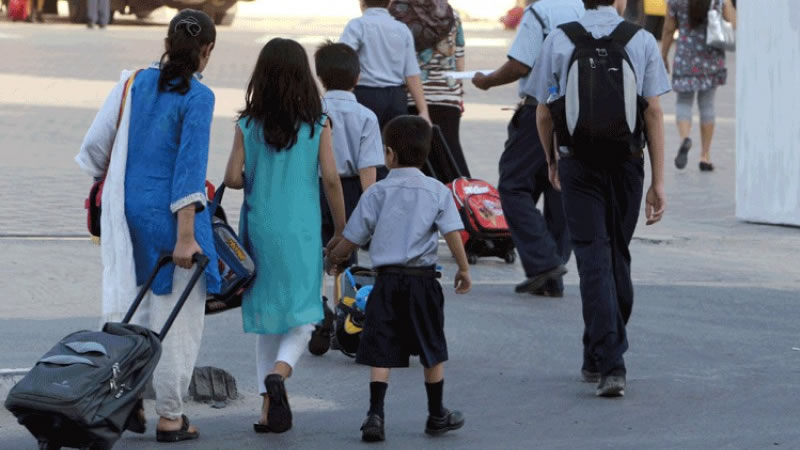 A-level passes have risen for the 29th year in a row as teenagers face an intense battle for university places.Those who miss out on a place this year could face tuition fees of up to £9,000 a year.Many did not know for hours whether they had a place, after problems on a key university admissions website.Hundreds of thousands of teenagers in England, Wales and Northern Ireland have received the results of their A- and AS-levels.The overall pass rate is up slightly, but for the first time in 14 years there has been no increase in the total proportion getting A or A* grades.Just over 27% of entries scored these grades, with a small rise in the proportion awarded A*.
A-level passes have risen for the 29th year in a row as teenagers face an intense battle for university places.Those who miss out on a place this year could face tuition fees of up to £9,000 a year.Many did not know for hours whether they had a place, after problems on a key university admissions website.Hundreds of thousands of teenagers in England, Wales and Northern Ireland have received the results of their A- and AS-levels.The overall pass rate is up slightly, but for the first time in 14 years there has been no increase in the total proportion getting A or A* grades.Just over 27% of entries scored these grades, with a small rise in the proportion awarded A*.
The Ucas Track website, where teenagers find out whether they have got their university places, was taken down for several hours, after the system could not cope with the number of people logging on.Students vented their anger on Twitter, other social networking sites – and to the BBC.Ucas has apologised, saying the number of people of logging on had been four-times higher than at the same time last year. It now says the service has been fully restored.Data it released on Thursday afternoon show the number of students who had logged in to the Track system by lunchtime was vastly down on what it was this time last year (461,000 opposed to 1.2 million).
Earlier, one parent, who is also a secondary school head teacher, told the BBC News website: “My son is waiting to find out if he has been accepted at his first-choice university. The Ucas website has been down… My son is therefore trying to ring the admissions tutor but of course the switchboard is jammed.”There are students, parents and schools all over the country who are now having to deal with the difficulty and frustration of a failed ICT system. This should be a simple and efficient process which has instead caused problems for thousands of people.”Alice Brien, from Huntingdon, said: “I have just got my results and didn’t get the grades required.
“I’m still unable to log on to Ucas. I’ve been trying to phone university phone numbers and they are continually engaged. It has just been chaos.”From 2012, many UK students will face tuition fees up to a maximum of £9,000 a year at English universities, compared with the present level of just over £3,000 a year.In Scotland and Wales, fees will be imposed or raised for students from other parts of the UK, but not for “home” students. Scottish students will continue to pay no fees and Welsh students will be subsidised wherever they study in the UK.Northern Ireland’s universities will not raise their fees next year.
Overall, the A-level pass rate rose slightly from 97.6% to 97.8% .The results show boys have closed the gap with girls at the very top grade of A* and that more teenagers are opting to do science and maths.Entries for maths (and further maths) rose by 7.4%, while there were also increases for biology (7.2%), chemistry (9.2%) and physics (6.1%).But fewer teenagers are opting to take traditional modern languages at A-level – a trend which has been seen for many years.Entries for French and German fell again – this year by 4.7% and 6.9% respectively.With applications at record levels and a drop in the number of teenagers taking a gap year, universities have been raising their entry requirements.The government says 15 of England’s universities now want applicants to have at least one A* grade.
‘True picture’
The new top grade was brought in last year, together with changes designed to make the A-level more challenging to bright students.But the proportion of entries getting either an A* or an A stayed unchanged at 27%.Schools Minister Nick Gibb praised teenagers for their hard work, and said they showed the true picture of “British youth”.”We should congratulate the quarter of a million young people who have succeeded in getting an A-level grade or more than one A-level grade,” he said.”It’s a real contrast to appalling films we saw of a tiny minority of young people causing mayhem in our cities. I hope these pictures [of A-level students] are broadcast worldwide because these represent the true picture of British youth.”
In the UK as a whole, just over three-quarters of A-level exam entries were awarded at least a C grade – with 27% scoring an A or A*.Results were highest again in Northern Ireland, where 34.5% of entries were given an A or A*. In England, 26.8% made that grade and in Wales, the figure was 23.9%.
Pressure on placesSo far, there have been just over 673,000 applications for undergraduate places in the UK.Ucas says nearly 190,000 applicants are eligible for clearing – often because they have not got the grades they needed – including students from overseas.That is nearly 5,000 more than this time last year.Ucas says there are 29,400 courses with places available at the moment – a drop from 33,105 last year.Last year, 47,000 students found places through clearing.Applications to UK universities are at a record high, after several years of steady increase.Last year, they rose by 12%. This year applications rose by 1.3%.
At the same time, the number of candidates taking a gap year – deferring for 12 months – has fallen by 40% to 30,000.Education Secretary Michael Gove has ordered a review of A-levels to see how they compare with exam systems in other countries.He has also said he wants more emphasis on a final exam which stretches candidates’ capacity for original thought.Recent changes to the A-level – brought in at the same time as the A* grade – involved the introduction of questions designed to stretch the brightest students and the cutting of the number of modules or sections of an A-level from six to four.About 160,000 teenagers in Scotland got the results of their Highers and Advanced Highers earlier this month.The pass rate for the Higher was 75.2%, an increase of 0.5% on the previous year, while the figure for Advanced Highers was 79.3%, up 1.8%. – BBC












